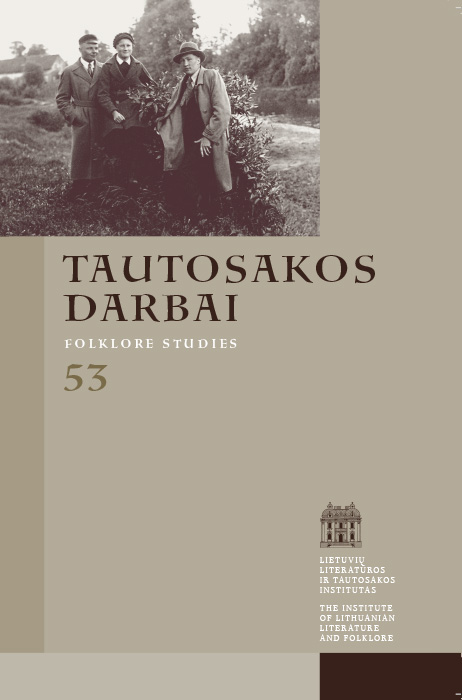A Share of Silent Existence in the Local Culture: “Oh, Blossom forth, You Dried Apple-Tree...”
Abstract
The article deals with phenomenon of silence manifested in Lithuanian local culture. The author follows the course of consciousness, in which human being appears as a silent one, asserting that silent existence seems supported by the silent natural phenomena, including silent existence of things. The local culture is essentially a silent one. Life in close proximity of nature and earth encourages silent concentration of people. Work and movement ensure survival. However, when a person disengages from necessary actions, submerging instead in oneself, in one’s own silence – such act is very important for culture and creativity. The folk sculpture indicates that its makers were working in silence and concentration, attempting to express their inner state. Silence is meaningful also in folksongs, in their metaphors. The classical folksongs stem from silent experience of their performers, from their moments of inner clarity. Researchers of folklore and folk art have long ago noted its silent creators and their special way of cherishing silence. However, separate research is required to investigate the bearers of folklore and folk art.
The article draws from folklore, classical literature, and phenomenological philosophy; such course of research that also involves experience merits definition as a phenomenological one.
Downloads
Most read articles by the same author(s)
- Viktorija Daujotytė-Pakerienė, Local Culture and Freedom , Tautosakos darbai: Vol. 53 (2017)
- Viktorija Daujotytė-Pakerienė, The Feeling of One’s Own in Terms of Inherent Community , Tautosakos darbai: Vol. 51 (2016)
